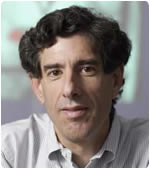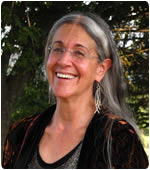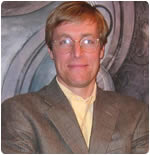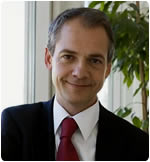Friday, 10:00 a.m. - 11:00 a.m.
INVITED ADDRESS
Change Your Brain by Transforming Your Mind
Richard J. Davidson, University of Wisconsin-Madison

This talk will present an overview of studies conducted in our laboratory on neural changes associated with different forms of meditation. Distinctions among three major forms of meditation practice will be made: focused attention; open monitoring; and positive affect training. These different forms of meditation have different neural and behavioral effects. From the perspective of Western neuroscience, different forms of meditation can be conceptualized as mental training to promote the regulation of emotion and attention. Data from studies on long-term meditation practitioners as well as those with shorter durations of training will be highlighted. In addition, some longitudinal studies that track changes over time with meditation practice will be reviewed. In addition to the neural changes that have been observed, this talk will also summarize changes that have been found in peripheral biology that may modulate physical health and illness. The central brain circuitry of emotion is especially implicated in peripheral biological changes that have consequences for health. The overall conclusions from these studies is that one can transform the mind through meditation and thereby alter the brain and the periphery in ways that may be beneficial for mental and physical health, and for well-being.
Richard J. Davidson is the William James and Vilas Research Professor of Psychology and Psychiatry, Director of the Waisman Laboratory for Brain Imaging and Behavior and the Laboratory for Affective Neuroscience, Founder and Chair and the Center for Investigating Healthy Minds, Waisman Center at the University of Wisconsin-Madison. He received his Ph.D. in psychology from Harvard University and has been at Wisconsin since 1984. He has published more than 290 articles, many chapters and reviews, and has edited 14 books. He has been a member of the Mind and Life Institute's Board of Directors since 1991. He is the author (with Sharon Begley) of The Emotional Life of Your Brain, published by Penguin in 2012.
He is the recipient of numerous awards for his research, including a National Institute of Mental Health Research Scientist Award, a MERIT Award from NIMH, an Established Investigator Award from the National Alliance for Research in Schizophrenia and Affective Disorders (NARSAD), a Distinguished Investigator Award from NARSAD, the William James Fellow Award from the American Psychological Society, and the Hilldale Award from the University of Wisconsin-Madison. He was the founding Co-Editor of the new American Psychological Association journal Emotion and is Past-President of the Society for Research in Psychopathology and of the Society for Psychophysiological Research. He was the year 2000 recipient of the most distinguished award for science given by the American Psychological Association-the Distinguished Scientific Contribution Award.
In 2003 he was elected to the American Academy of Arts and Sciences and in 2004 he was elected to the Wisconsin Academy of Sciences, Arts and Letters. He was named one of the 100 most influential people in the world by Time in 2006. In 2006 he was also awarded the first Mani Bhaumik Award by UCLA for advancing the understanding of the brain and conscious mind in healing. Madison Magazine named him Person of the Year in 2007. In 2008, he founded the Center for Investigating Healthy Minds, a research center dedicated to the study of positive qualities, such as kindness and compassion. In 2011, he was given the Paul D. MacLean Award for Outstanding Neuroscience Research in Psychosomatic Medicine. He serves on the Scientific Advisory Board at the Max Planck Institute for Human Cognitive and Brain Sciences in Leipzig (2011-2017) and as Chair of the Psychology section of the American Association for the Advancement of Science (2011-2013).
His research is broadly focused on the neural bases of emotion and emotional style and methods to promote human flourishing, including meditation and related contemplative practices. His studies have included persons of all ages, from birth though old age, and have also included individuals with disorders of emotion such as mood and anxiety disorders and autism, as well as expert meditation practitioners with tens of thousands of hours of experience. His research uses a wide range of methods including different varieties of MRI, positron emission tomography, electroencephalography, and modern genetic and epigenetic methods.
Friday, 12:30 p.m. - 1:30 p.m.
INVITED ADDRESS
Updating Trauma Memories: a Cognitive Approach toTreating Posttraumatic Stress Disorder
Anke Ehlers, University of Oxford
After traumatic events such as assault, severe accidents, natural disaster, or bombings, many people develop distressing symptoms such as intrusive reexperiencing of the event, hyperarousal, and emotional numbing. While many people recover from these symptoms on their own, a significant proportion develops chronic posttraumatic stress disorder (PTSD).
Ehlers and Clark (2000) suggested that chronic PTSD develops if trauma survivors process the traumatic event in a way that poses a serious current threat. The perceived threat has two sources: First, people with chronic PTSD show excessively negative appraisals of the trauma and/or its sequelae. Second, the nature of the trauma memory leads to easy cue-driven trauma memories that lack the awareness of the self in the past. Furthermore, the patients' appraisals motivate a series of dysfunctional behaviors and cognitive strategies that are intended to reduce the sense of current threat but maintain the disorder.
The presentation will review a series of prospective longitudinal studies of trauma survivors and laboratory experiments that tested the role of the maintaining factors suggested in this model. It will describe a treatment program (Cognitive Updating Therapy for PTSD) developed by our group that builds on this model. Treatment procedures aim at updating trauma memories (i.e., accessing worst moments of the trauma and actively incorporating information that updates their meanings) and training patients to discriminate between the stimuli that were present during the trauma ("then") and the innocuous triggers of reexperiencing symptoms ("now"). Problematic appraisals and maintaining cognitive and behavioral strategies are modified. Five randomized controlled trials showed that the treatment is highly acceptable and more effective than wait-list, self-help, or an equally credible psychological treatment. Effectiveness studies found large treatment effect sizes by trained clinicians in a community setting and a routine NHS clinic.
Anke Ehlers obtained her Ph.D. in psychology (1985) from the University of Tübingen, Germany, and a postdoctoral degree in clinical psychology and psychophysiology (habilitation, 1990) from the University of Marburg, Germany. She is Professor of Experimental Psychopathology, Wellcome Trust Principal Research Fellow and Co-Director of the Oxford Centre for Anxiety Disorders and Trauma at the Department of Experimental Psychology, University of Oxford, UK. She is a Fellow of the German Academy of Sciences Leopoldina, Association for Psychological Science, British Academy and Academia Europaea.
Her previous posts include Research Scholar at Stanford University, USA (1983-1985), Assistant Professor at the Department of Psychology, University of Marburg, Germany (1985-1991), Professor of Clinical Psychology at the Department of Psychology, University of Göttingen, Germany (1991-1993), Wellcome Trust Principal Research Fellow at the Oxford University Department of Psychiatry, UK (1993-2000), Professor of Experimental Psychopathology and Wellcome Trust Principal Research Fellow at the Institute of Psychiatry, King's College London, UK (2000-2011), and Fellow at the Center for the Advanced Study in Behavioral Sciences, Stanford, USA (2004-2005). She co-chaired the UK's National Institute for Health and Clinical Excellence PTSD Guideline Development Group (2002-2005).
Her research and clinical work focus on anxiety disorders, in particular posttraumatic stress disorder, social anxiety disorder, and panic disorder. In her experimental work, she has established cognitive and psychophysiological factors that maintain these disorders. Further research interests include psychological factors in cardiovascular and dermatological disorders. With her colleagues, she has developed effective cognitive behavioral treatments for posttraumatic stress disorder and atopic dermatitis.
Saturday, 9:30 a.m. - 10:30 a.m.
INVITED ADDRESS
Challenges and Promises of Experimental Therapeutics
Varda Shoham, National Institute of Mental Health

NIMH is shifting emphasis from large-scale clinical trials to an experimental therapeutic approach that focuses on specific targets for treatment development. Whether medical or psychological, it is not enough to know the overall effect of an intervention on broad diagnostic categories of patients. To produce more precise treatments we need to show not only that a specific, theory-derived target has been engaged by the intervention but also that this target engagement leads to clinical benefits. This is a tall order, but one that will move our science faster and more solidly from bench to clinics.
In this talk, I plan to describe the challenges facing new behavioral treatment development. This notion is not new. After all, it was Louis Pasteur's understanding of germ theory that led to the production of effective preventive measures such as vaccination and pasteurization. For a new generation of treatments, we need to identify and confirm targets that go beyond traditional DSM diagnoses and test the effects of engaging these targets on patient outcomes.
Varda Shoham has been a professor of psychology at the University of Arizona, where she served three terms as director of its clinical science program. The last two years she was on leave, serving as Special Assistant to the Director of NIMH, and at the end of 2012 she accepted a permanent position as Senior Advisor for Translational Research at NIMH. She served as elected President of the Academy of Psychological Clinical Science (APCS) and the Society for the Science of Clinical Psychology (SSCP), and as member of the original Task Force on Empirically Supported Treatments. Her own research, funded by the NIMH, NIDA, and NIAAA, has focused on how and for whom certain psychosocial treatments work, testing hypotheses derived from basic psychological theories of problem maintenance and change. Now, at NIMH, her career path takes a more generative turn, as she focuses on advancing behavioral treatment research at large.
Saturday, 12:45 - 1:45 p.m.
INVITED ADDRESS
Emotion Regulation: Conceptual Foundations and Clinical Applications
James J. Gross, Stanford University

The past decade has seen an extraordinary increase in research on emotion regulation. Work from dozens of laboratories around the world has converged to establish that emotion regulation plays a crucial role in determining a wide range of affective, cognitive, and social outcomes. My talk will have three parts. In the first part of the talk, I will define emotion and emotion regulation, and describe a framework for understanding the role of emotion regulation in healthy adaptation. In the second part of the talk, I will review key behavioral findings which suggest that specific forms of emotion regulation have different consequences for affective, cognitive, and social functioning. In the third part of the talk, I will discuss the clinical relevance of these findings for assessment and treatment, with a particular focus on social anxiety disorder.
Dr. James Gross is Professor of Psychology at Stanford University and Director of the Stanford Psychophysiology Laboratory (http://spl.stanford.edu). Dr. Gross earned his B.A. in philosophy from Yale University in 1987 and his Ph.D. in clinical psychology from the University of California, Berkeley, in 1993. He is a leading researcher in the areas of emotion and emotion regulation, and he has received early career awards from the American Psychological Association, the Western Psychological Association, and the Society for Psychophysiological Research. Dr. Gross also has won numerous awards for his teaching, including a Dean's Award for Distinguished Teaching, the Phi Beta Kappa Teaching Prize, the Stanford Postdoctoral Mentoring Award, and the Walter J. Gores Award for Excellence in Teaching. Dr. Gross has authored over 250 publications, including Psychology and the Handbook of Emotion Regulation, and is a Fellow in the Association for Psychological Science and the American Psychological Association.
Saturday, 5:30 p.m. - 6:30 p.m.
PRESIDENTIAL ADDRESS
The Future of CBT in the Age of the DSM-5
Stefan Hofmann, Boston University
MODERATOR: Dean McKay, Fordham University

As is true for its predecessors, the DSM-5 assigns diagnostic labels to individuals who differ widely in their clinical presentation, as well as the underlying etiological and maintenance factors. Moreover, clients from different DSM categories share many similarities. Given the recent publication of the DSM-5, the question about the future of CBT arises. Even after more than 6 decades of research since its first publication, the DSM is still built on the medical model to create fairly arbitrary criteria for defining disease entities based on expert judgments. Despite this, modern CBT effectively targets virtually all DSM disorders. Modern CBT refers to a family of interventions that has evolved from a specific treatment model into a mature and empirically supported approach that incorporates a wide variety of patient-tailored treatment techniques. In this presentation, I will discuss some exciting new advancements in CBT that are an expansion of its underlying core model-namely, that cognitions causally influence emotions and behaviors and, thereby, contribute to the maintenance of psychological problems. I will review some early findings showing how neuroscience methodology, including brain imaging and novel pharmacological agents, can predict, tailor, personalize, and enhance CBT for a given client. Future CBT will likely evolve further by converging with the fields of affective neuroscience, emotion research, psychiatry, biology, and pharmacology. Some of the novel techniques that may become standard practice include meditation exercises and other techniques to enhance emotion regulation skills, attention retraining exercises, and the use of cognitive enhancers.
Stefan G. Hofmann, Ph.D., is Professor of Psychology at Boston University, where he is the Director of the Psychotherapy and Emotion Research Laboratory. Stefan was born and raised in Germany. He came to the U.S. in 1991 and has been calling Boston his home since 1996. He has served ABCT in many capacities, including as President (2012-2013); Representative-at-Large and Board liaison to Academic and Professional Issues (2008-2010), Editor of Cognitive and Behavioral Practice (2005-2008), and President of the Anxiety Disorders SIG (2003-2005). He is the recipient of ABCT's 2010 Outstanding Service Award and of the Aaron T. Beck Award for Excellence in Contributions to CBT by Assumption College. He is presently Editor-in-Chief of Cognitive Therapy and Research and Associate Editor of the Journal of Consulting and Clinical Psychology. Stefan has published widely as an author of more than 200 peer-reviewed journal articles and 15 books, including An Introduction to Modern CBT (Wiley-Blackwell). His research focuses on the mechanisms of treatment change, translating discoveries from neuroscience into clinical applications, emotion regulation, and cultural expressions of psychopathology. Stefan has been awarded generous research grants from the NIMH and NARSAD. He lectures internationally, is a licensed psychologist, and is married with two children.

